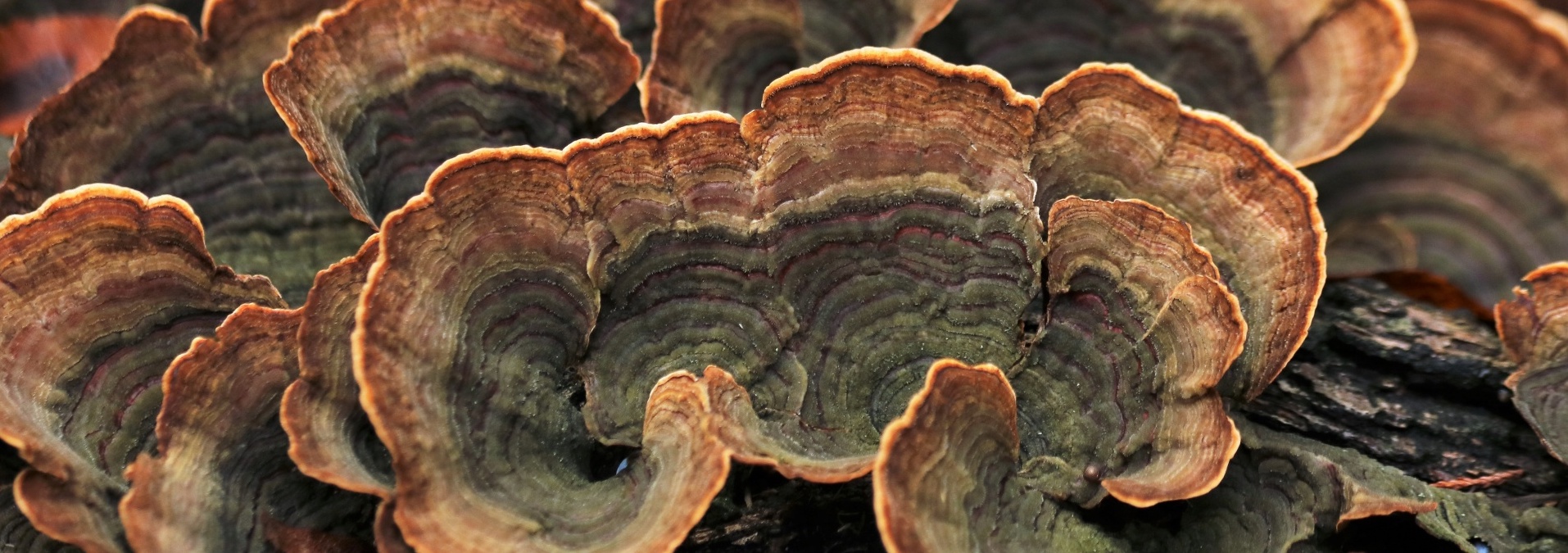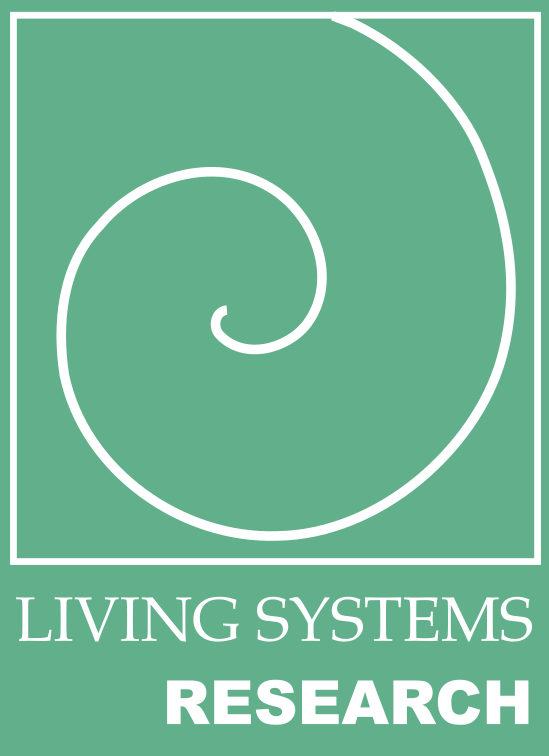Our activities
Our activities range from the participation, the scientific exchange at international conferences, workshops and scientific events for the general public to lectures and talks on the history of science and popular science (the last two ones in the framework of Living Systems Research Humanities). Our current research results are quasi-periodically presented in the form of seminars which are open to everyone who is interested in our research. Here we present in a scientific but adequate language for this purpose. For the general public we present our research in an straight forward, easy-going and practical way once a year at different science events organized around Austria. |
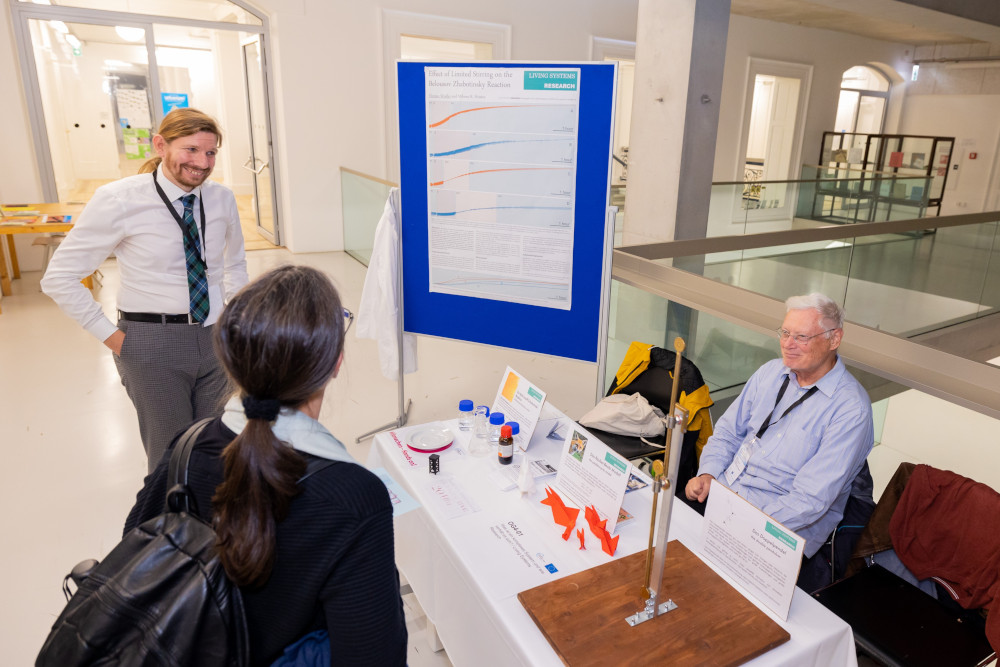 Florian Wodlei and Mihnea Hristea presenting at the "European Researchers' Night", September 2022 |
In the following we present the different activities of our institute in more details. Click on the section to see more.
Seminars
Seminars
We organize periodically seminars where we present our current research results. These seminars are open to the general public. If you are interested in participating please send an informal email to info@ilsr.at to register. Our seminars take place in hybrid configuration (i.e. on place while the content is broadcasted live online at the same time for participants who can not join us in person). Our next seminar is scheduled for the February 2025 (more details can be found here soon). |
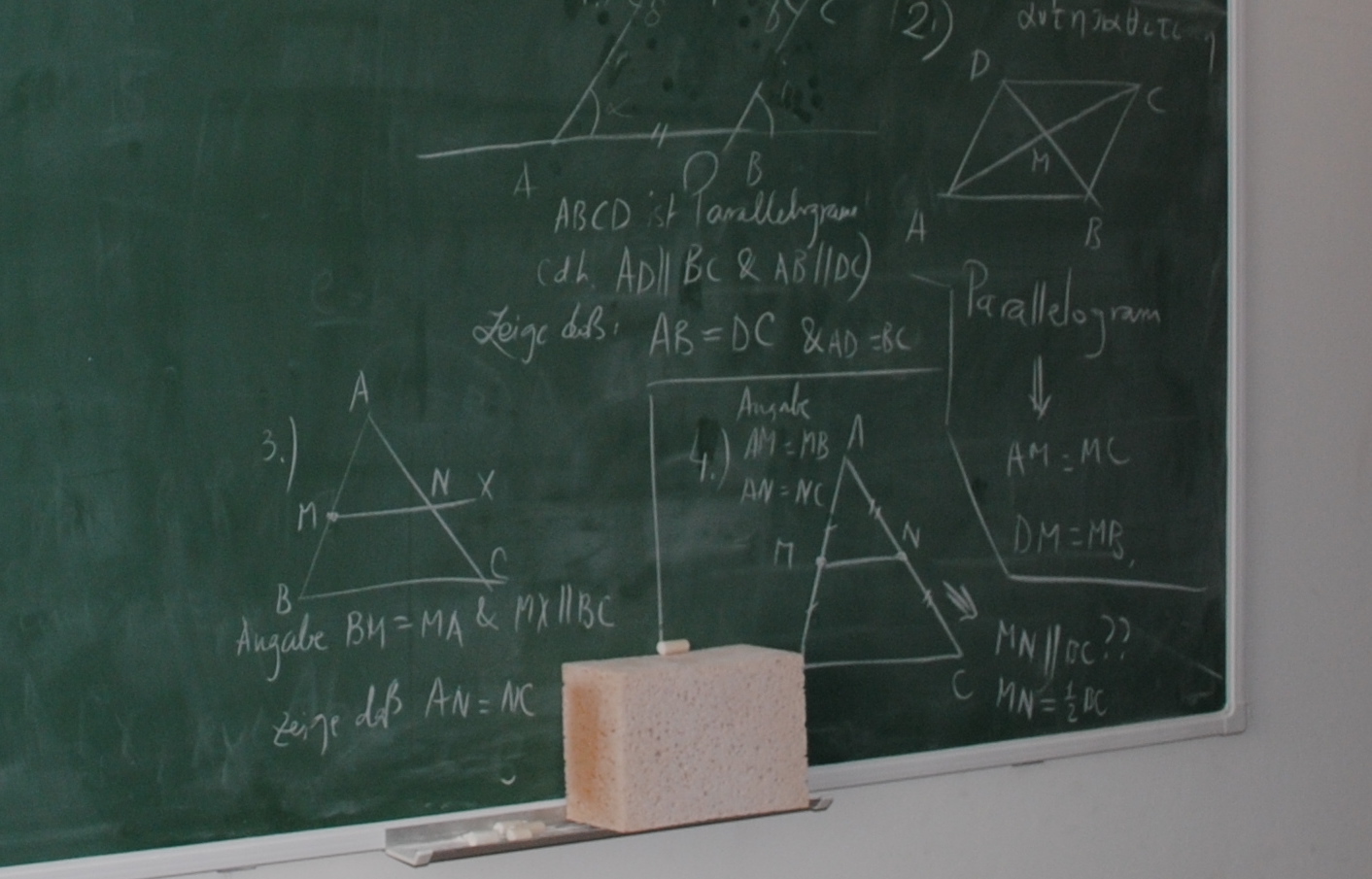 Special seminar on Eulidian geometry (the proof of Euklid for the theorem of Thales for comensurabel distances) |
In the following table you find an overview of current and the past seminars together with the main topics that were disscused.
| Datum/Date/Nr. | Hauptthemen/main topics | Bemerkungen/remarks | |||
|---|---|---|---|---|---|
| 15.2.21/16 |
|
||||
| 12.5.20/15 | Introduction to the topic from a historical and hydro-mechanical point of view with reference to the universality of the transition to chaos and the field of research on chaos/Introduction to the mathematical background like irrationality, toroidal structure of the phase space aswell as poincare sections and its importance as an indicator for the transition to chaos/Discrete mappings with compact support like the tent map or the logistik map and their topological/First results of a numerical analysis on the double pendulum |
takes place ONLINE in English language | |||
| 30.12.19/14 | Einleitendede Wiederholung der Themen "Mathematische Beschreibung komplexer Systeme (u.a. einfaches und Doppelpendel)" sowie "Bifurkationen in komplexen Systemen (u.a. gedämpftes Pendel, Räuber-Beute Modell)"/ Übergang zum Chaos - Vergleich des Übergangsszenarios nach Lev Landau und nach Ruelle, Takens und Newhouse/ Ein Maß für das Chaos komplexer Systeme / Quasiperiodizität und die Bewegung des representativen Punktes auf einem Torus//Introductive repetition of the topics "mathematical description of complex systems (including the single pendulum and the double pendulum" aswell as"bifurcations in complex systems (including the damped pendulum aswell as the predator-prey model)" (contents of the 13th seminar)/Transition to chaos - comparision of the transition scenarion after Lev Landau and after Ruelle, Takens und Newhouse/A chaos measure for complex systems /Quasiperiodizity and the motion of the representative point on a Torus. |
wird im Seminarraum des Labors abgehalten | |||
| 18.8.19/13 | Komplexe Systeme – ein Weg zur Beschreibung natürlicher Systeme/Dynamische Systeme – die Theorie hinter den komplexen Systemen/Hopf-Bifurkation mit Beispielen aus der Physik und Ökologie//Complex systems - a way to describe natural systems/dynamical systems - the theory behind the complex systems/Hopf bifurcations with examples from physics and ecology |
||||
| 10.8.16/XII | A Reaction-Diffusion Model for a Chemo-hydrodynamic Effect in a Belousov Zhabotinsky Oscillator// Ein Reaktions-Diffusions Model für einen chemo-hydrodynamischen Effect in einem Beloussow Schabotinski Oszillator |
||||
| 10.4.15/XI | Selbstorganisation eines Dichlormethan Tröpfchens auf der Oberfläche einer tensidhaltigen wässrigen Lösung // Self-Organisation of a Dichloromethane Droplet on the Surface of a Tensio-actif Containing Aqueous Solution |
||||
| 8.9.15/(XI) | Ausblick der Forschungsschwerpunkte für die nächsten drei Jahre/Arbeitsteilung und "Memory performance" in Ameisenkolonien//Overview of the research focus for the next three years//Division of labor and memory perfomance in ant-colonies |
canceled/hat nicht stattgefunden | |||
| 24.4.14/X | Von Lipid-Tröpfen zu oszillierenden Liposomen/Die Rolle der Stochastik bei der natürlichen Selektion und Evolution//From Lipid Droplets to oscillating Liposomes/The role of stochastics in the Theory of Selection and Evolution |
||||
| 1.3.14/IX | Manfred Eigen's Theorie zur Selektion und Evolution/„Oszillierende Liposome“ und chemo-hydrodynamische Instabilitäten//Manfred Eigen's Theory on Selection and Evoltion/Oscillationg Liposmes and chemo-hydrodynamic instabilities |
||||
| 5.1.14/VIII | Nonlinear Dynamics-Forschungsgruppen/Elementare Chemie zum Verständnis von Redoxreaktionen/elementare Erkennungsprozesse in der Belousov Zhabotinsky Reaktion//Nonlinear Dynamics-research groups/elementary chemistry of redox reactions/elementary recognition processes in the Belousov Zhabotinsky reaction |
||||
| 7.9.2013/VII | Präsentation der geplanten Themen für die Konferenz in Barcelona (ECCS13)//presentation of the planned topics for conference in Barcelona (ECCS13) |
wird in Salzburg abgehalten | |||
| 13.4.13/VI | Besuch in Sardininen/Auswirkungen der Temperatur auf den Rühreffekt/BZ Reaktion als Dynamisches System//Visit to Sardinia/Temperature and Stirring Effect/BZ reaction as dynamical system wird in Salzburg abgehalten |
||||
| 16.2.13/V | Vorführung der BZ Reaktion/Modellierung mittels stochastischer Prozesse/Chemismus der BZ Reaktion//Presentation of the BZ reaction/Modeling via stochastical processes/chemical kinetics of BZ reaction |
||||
| 10.11.12/IV | Bericht von der ECCS'12 in Brüssel/Geschichte der Beloussow Schabotinski Reaktion/aktuell Forschungsergebnisse von F. Wodlei und M.Hristea // report from the ECCS'12 in Brussels/History of the Beousov Zhabotinsky reaction/current reserach results from F.Wodlei and M.Hristea |
||||
| 11.8.12/III | Fragen rund um "Was ist Leben?"/Präsentation der geplanten Themen für die Konferenz in Brüssel (ECCS12) // Questions on "What is Life?"/presentation of the planned topics for conference in Brussel (ECCS12) |
||||
| 22.6.12/II | Diskussion des Rühreffekts/Volumeberechung spezieller Körper/Beweis des Strahlensatzes für inkom. Dreiecke // Discussion of the stirring effect/calculation of volume of a special body/proof of the tercept theorem for incom. triangle |
||||
| 5.11.11/I | Rekursionsrelation der Fourierreihenentwicklung der Lösungen des 2D-FKN-Models (q = 0)/Entdeckung des Rühreffekts // Recursion relation for the fourier expansion of the 2D-FKN model |
||||
Pictures from the Seminars
Workshops and Public Events
Workshops and Public Events
To spread the knowledge on complex systems and science in general we participate at public events like "die Lange Nacht der Forschung" or the "European Researchers' Night" and we do also organize Workshops in Kindergardens, schools or companies. The topic of these Workshops can be individually adapted to the age and background of the participants. If you are interested in such a workshop please contatc us.
Lange Nacht der Forschung

The "Lange Nacht der Forschung" is a unique event that takes place around Austria every second year. It is the biggest event for science and research in the german speaking area. Every two years one full evening innovative insides and ground-breaking technologies are presented to the general public.
Living Systems Research at the "Lange Nacht der Forschung"
Since 2020 we are contributing to this event explaining to the (young) public where we find complex systems in daily lives and understand why investigating this systems can help to improve also our daily life. We also show experiments, like the double pendulum, where the transition from periodicity to chaos in a complex system can be experienced live on spot or the Belousov Zhabotinsky reaction in the petri dish set up where the formation of spacial paterns can be observed.
The next edition of the "Lange Nacht der Forschung" will take place on March 24th, 2026.
Living Systems Research at the "Lange Nacht der Forschung 2024"
In 2024 we presented at the "Lange Nacht der Forschung" our new research results about the connection between "Chaos" and "Order" and connected this life and Complexity. As always, we also showed this time the Belousov Zhabotinsky reaction in the petri dish configuration.
Living Systems Research at the "Lange Nacht der Forschung 2022"

This year, the first year after the Covid-19 pandemia, the Lange Nacht der Forschung took place again on place on 30th of May 2022, where we contributed with our stand.
Living Systems Research at the "Lange Nacht der Forschung 2020"
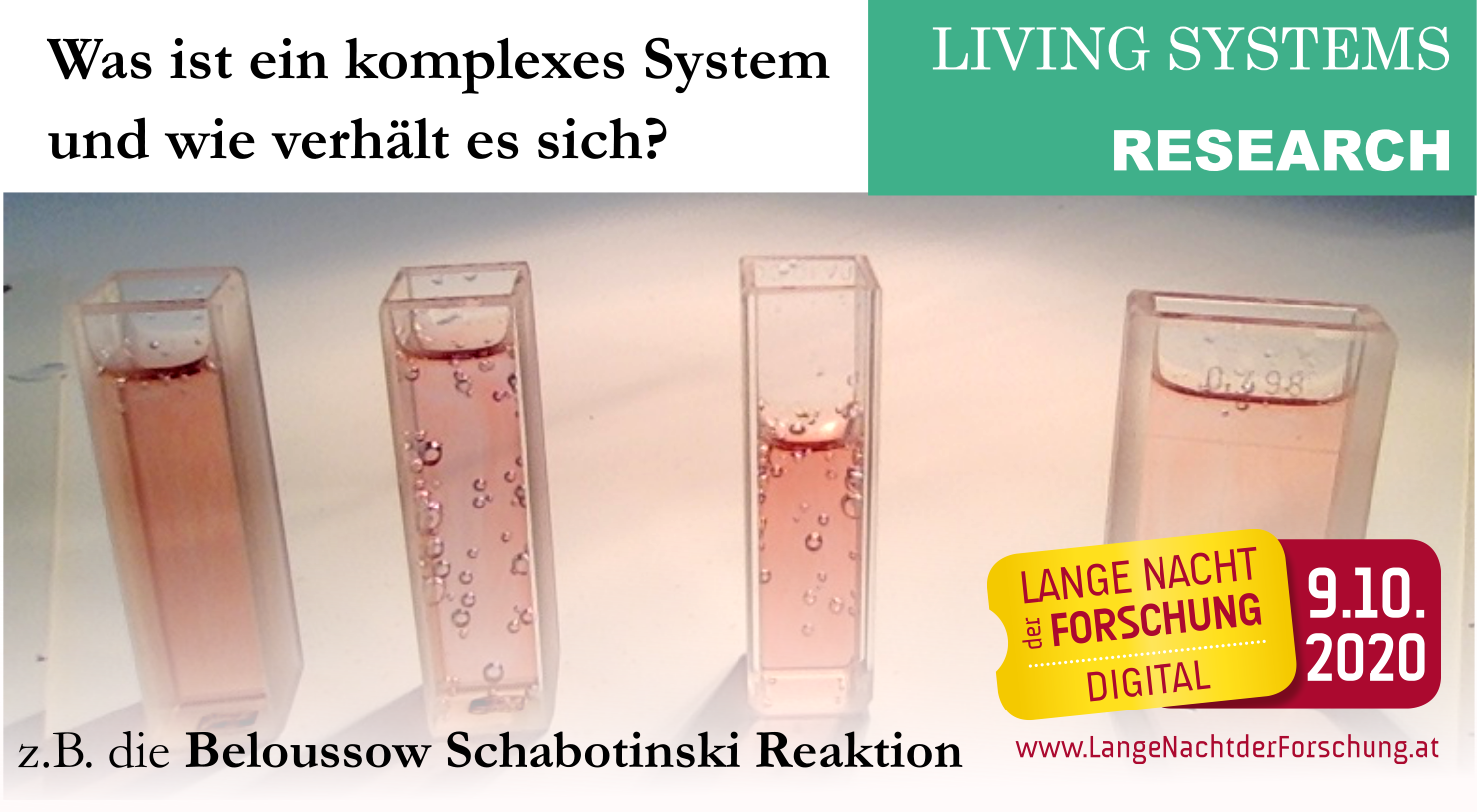
This year due to the Covid-19 pandemia the Lange Nacht der Forschung took place ONLINE on 9th of October, where we contributed with an live-stream on the double penduluum and the Belousov Zhabotinsky reaction.
European Researchers' Night
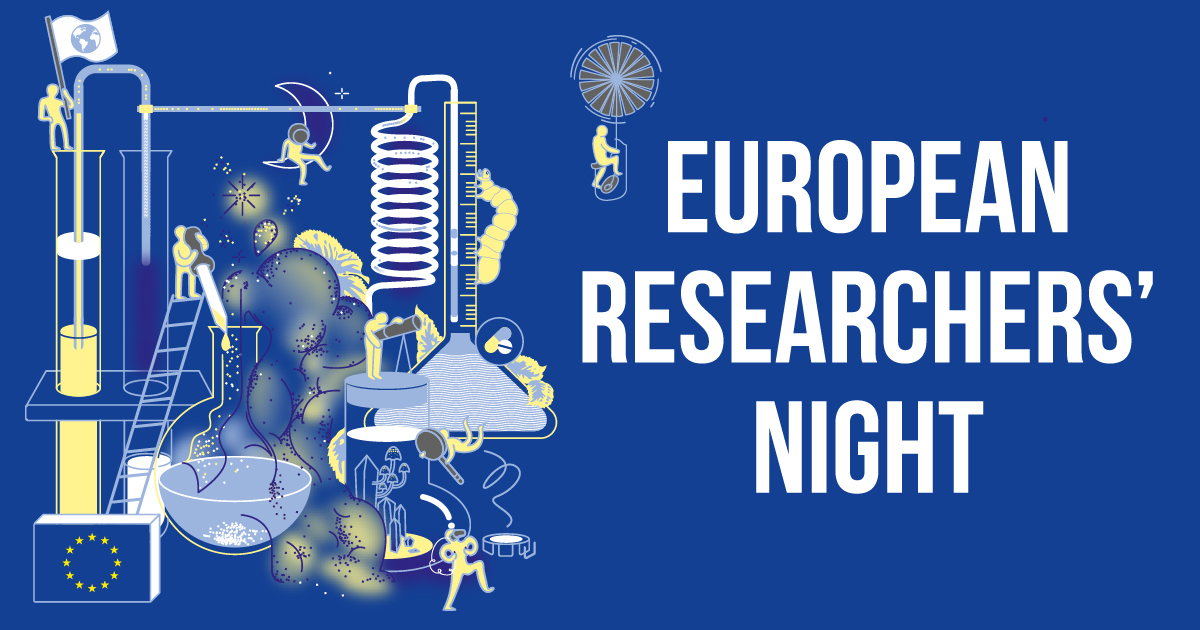
"The European Researchers' Night, funded under the Marie Skłodowska-Curie actions (MSCA), is a Europe-wide public event that brings researchers closer to the public.
The Night provides researchers the opportunity to showcase the diversity of science and its impact on citizens’ daily lives, and to stimulate interest in research careers – especially among young people. The events highlight how researchers contribute to our society by displaying their work in an interactive and engaging forum."
[European Commission]
Living Systems Research at the "European Researchers' Night"
Since 2019 we are contributing to this event explaining to the (young) public where we find complex systems around us and understand why investigating this systems can help to improve also our everyday life.
We also show experiments, like the double pendulum, where the transition from periodicity to chaos in a complex system can be experienced live on spot or the Belousov Zhabotinsky reaction in the petri dish set up where the formation of spacial paterns can be observed.
Living Systems Research at the "European Researchers' Night 2023"
Living Systems Research at the "European Researchers' Night 2022"
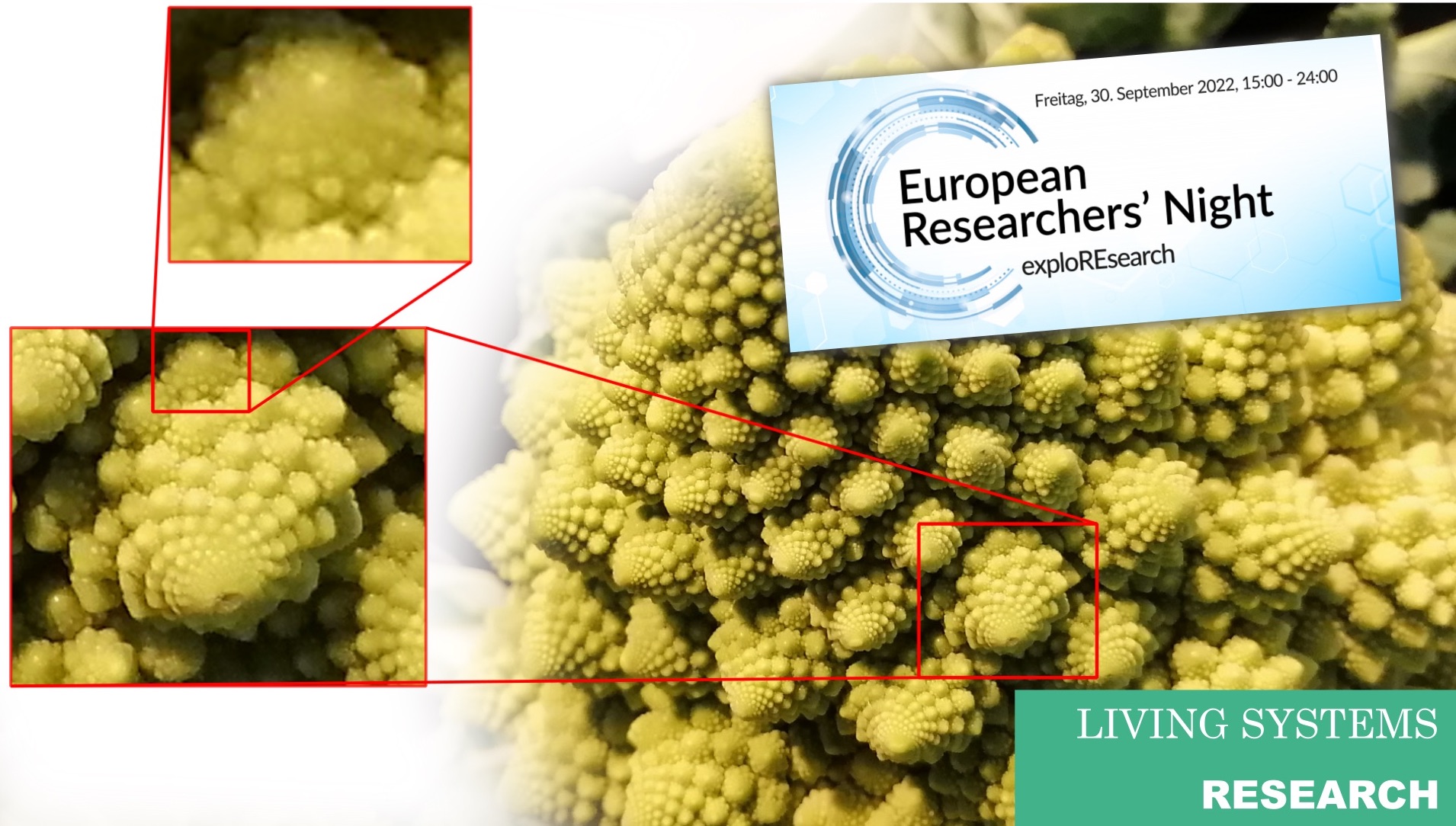
Living Systems Research at the "European Researchers' Night 2020"
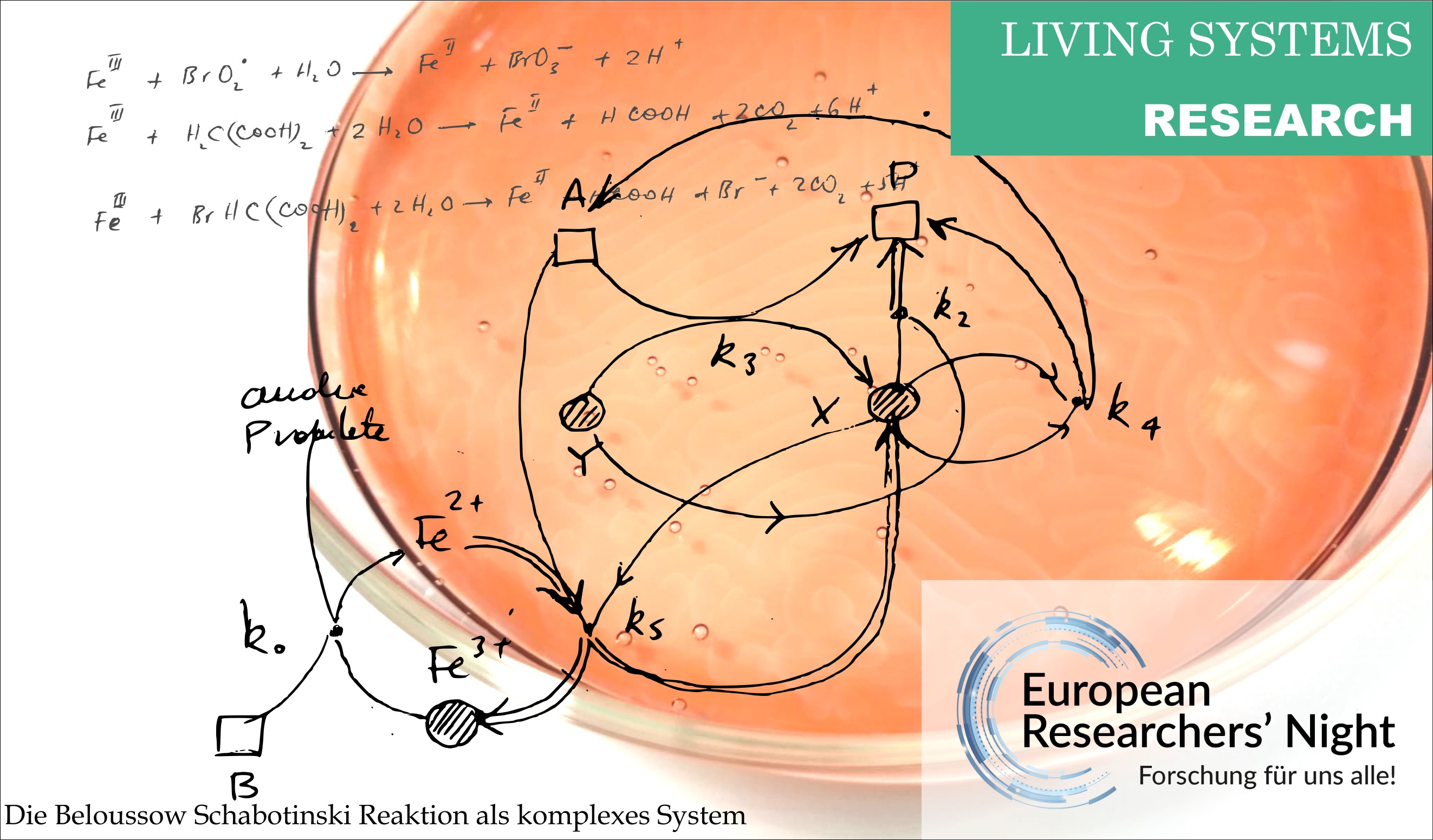
This year due to the Covid-19 pandemia the The European Researchers' Night takes place ONLINE on 27th of November, where we gave an online-talk .
Living Systems Research at the "European Researchers' Night 2019"
Workshops & Co.
Workshop: "Perché usiamo ancora la plastica?"/"Warum benützen wir immer noch Plastik?"
At the spring market in Aquileia (29th of April 2018) we had a stand with an exhibition of the different types of plastics. We were talking about the negative effects of plastic on the environement and the organism. The stand was well visited and we are happy we could spread the knowledge about the toxins used to produce the plastics.For more details have a look at our Facebook page (https://www.facebook.com/LivingSystemsResearch)
International Conferences
International Conferences
Gordon Research Seminar (GRS) 2024, Les Diablerets with Mihnea Hristea and Florian Wodlei
Conference on Complex Systems 2022, Palma de Mallorca, Catalonia with Mihnea Hristea and Florian Wodlei
Conference on Complex Systems 2020, online with Mihnea Hristea and Florian Wodlei
Voir cette publication sur InstagramUne publication partagée par Living Systems Research (@livingsystemsresearch) le
Conference on Complex Systems 2018, Thesaloniki with Mihnea Hristea and Florian Wodlei

Fifteenth Marcel Grossmann Meeting, Rome, 2018 with Giuseppe Alberti

Conference on Complex Systems 2016, Amsterdam with Mihnea Hristea (on the picture) and Jakob Klien

Conference on Complex Systems 2015, Tempe, Arizona, USA with Mihnea Hristea

European Conference on Complex Systems 2013, Barcelona with Mihnea Hristea and Florian Wodlei (from left)

European Conference on Complex Systems 2012, Bruxelles with Florian Wodlei and Mihnea Hristea (from left)


European Conference on Complex Systems 2011, Vienna with Mihnea Hristea and Florian Wodlei (from left)
